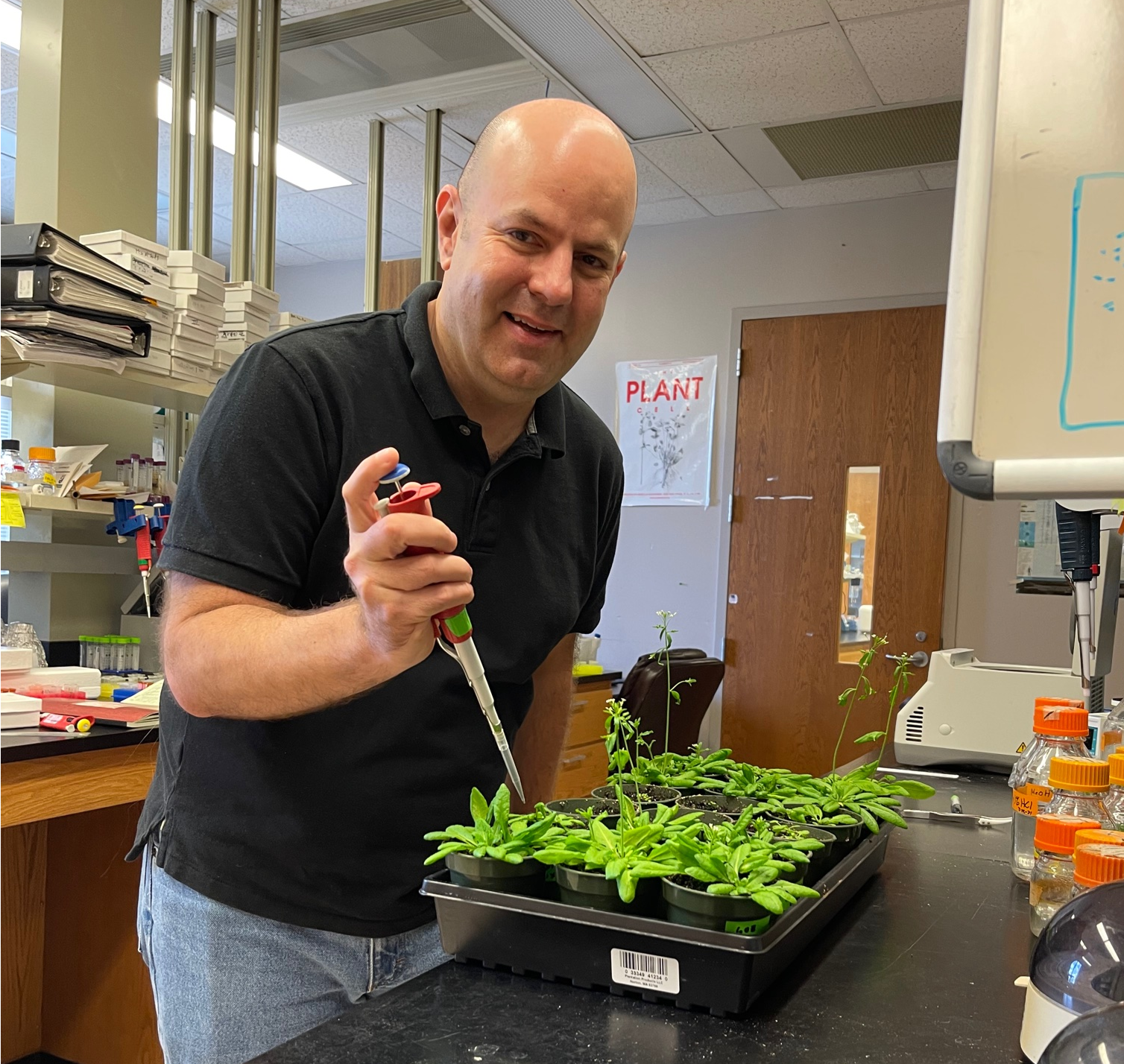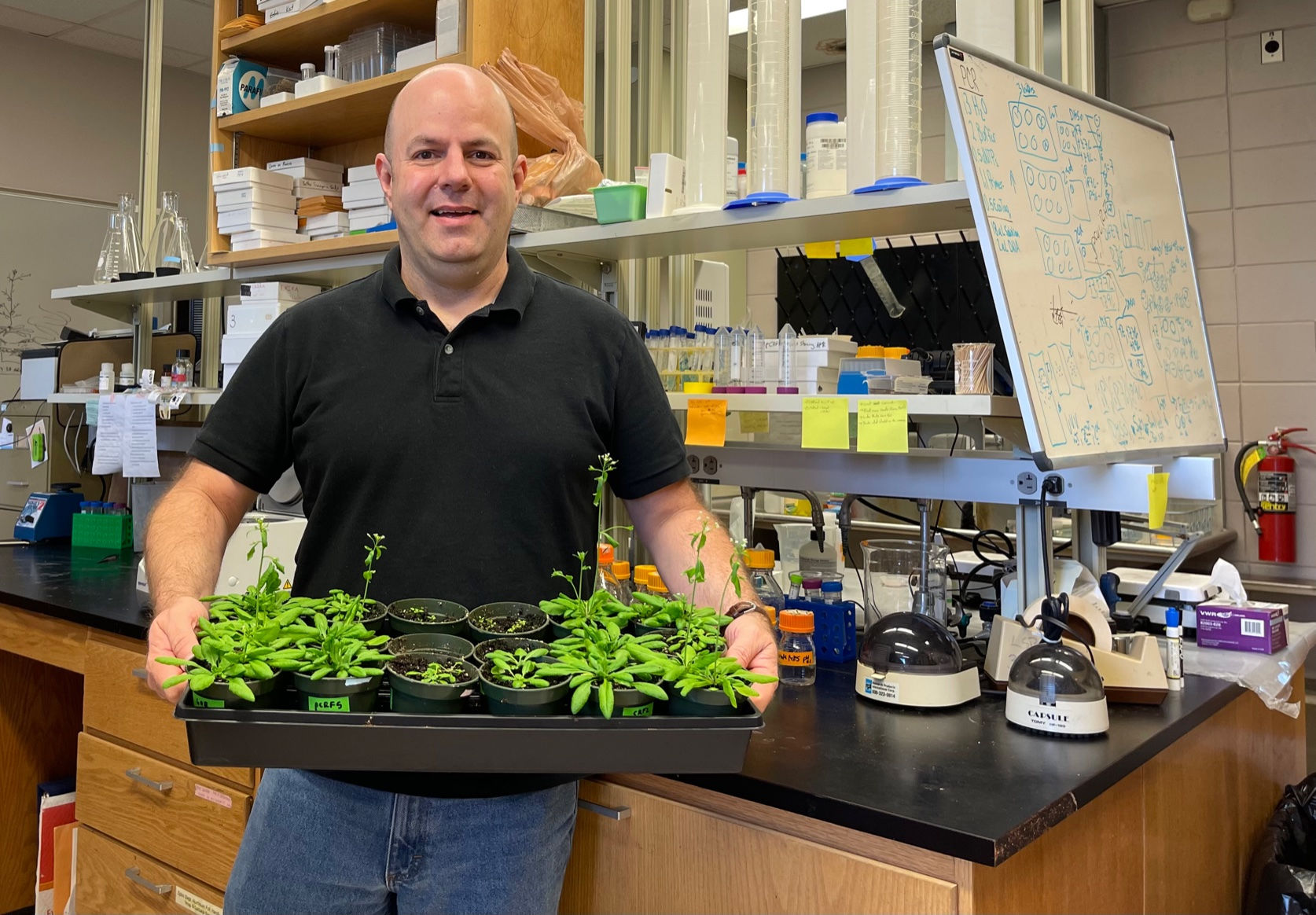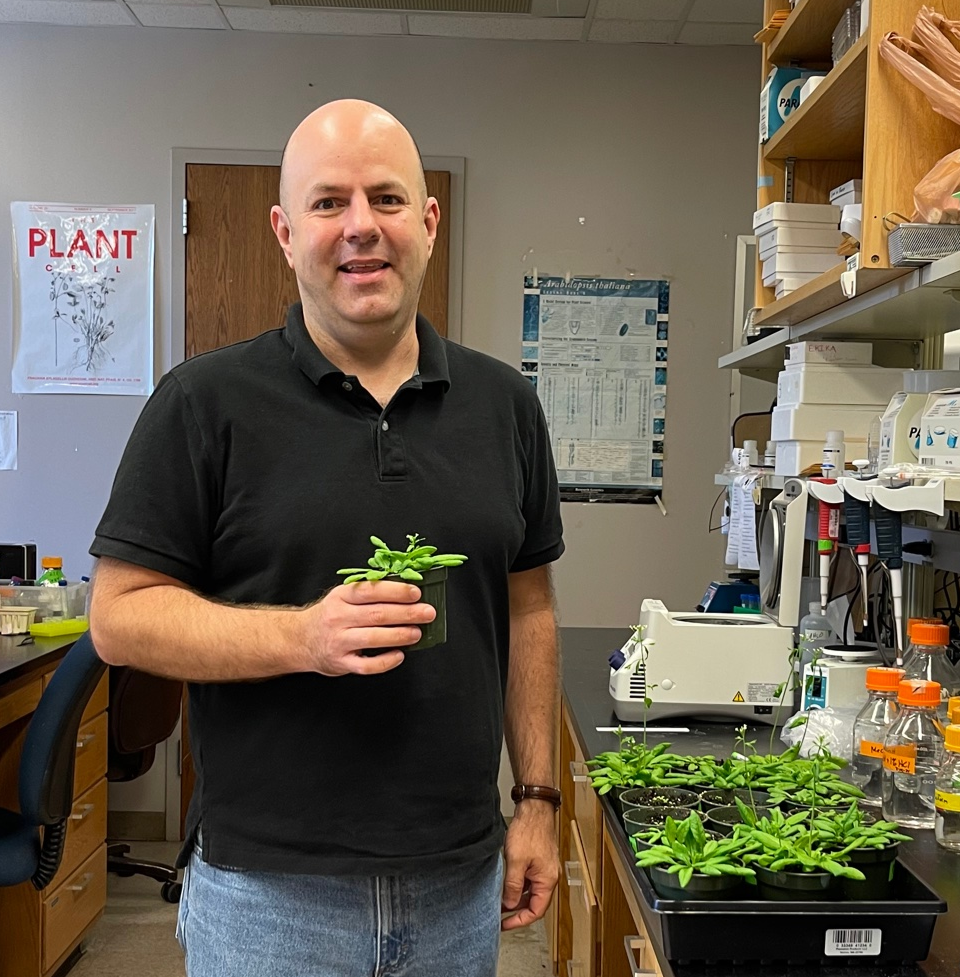Auburn biologist rediscovers forgotten activity of plant hormones
“I tell people to think of my research on this project like studying chocolate,” said Aaron Rashotte.
The professor in the Department of Biological Sciences shares this analogy to explain this new direction in his work as a plant biologist.
"For years, my lab at Auburn has worked to better understand the plant hormone cytokinin in terms of how it regulates plant growth and response to stresses. This has been done using molecular, genetics and physiological approaches. Most of that work has been focused on one type of cytokinin or 'chocolate' -- say milk chocolate. However, Cytokinin is really a blanket term for a class of about 30 chemically related hormone compounds.” So, there are actually many different cytokinins, or "chocolate" types. “If I asked several people to go to the store and bring back chocolate, I could get a variety of types including milk, dark, white, or maybe even mint, but myself and the scientific community have largely focused on the role of just one 'chocolate' flavor in plants.”
“About three years ago, I sent plant samples to our research collaborators in the Czech Republic to have hormone levels measured that were treated with stressors,” he shared. What we got back was there were a lot of different types of 'chocolates' (or cytokinins) that we were not studying at all. In fact, no one was really looking at one group of these hormones, known as N-Conjugates, since the scientific literature over the last 35 years said that they were just an inactive storage compound. Those measurements lead us to redo the examinations last conducted in the early 1980s in a more carful manner only to rediscover that these compounds did appear to be “actively” functioning.
Rashotte is the recipient of a National Science Foundation (NSF) award of $248,950 to conduct a full analysis of how these different forms of the hormone cytokinin function in the plant. He will use the NSF funding to conduct more in-depth research in his lab including studying how these hormones can delay the senescence of leaves and effect root growth, along with corresponding changes in gene and protein expressions and of course hormone levels. “Basically we are checking out if these different types of chocolates are good to eat, if you keep with the analogy.”
For Rashotte, students are what spark his passion in the lab. “In my 14 years with Auburn University, more than 75 students have made contributions in my lab,” he shared. “I love showing students how to conduct experiments and giving them the support to work independently in the lab.” Students will help him with experiments on this NSF-funded project. “Helping students learn how to work in a lab setting furthers our university’s research mission while preparing students for rewarding careers,” Rashotte said.
Latest Headlines
-
07/09/2024
-
Summer Bridge Program celebrates 21 incoming Auburn students as they prepare for future STEM careers07/02/2024
-
07/02/2024
-
06/17/2024
-
06/07/2024



